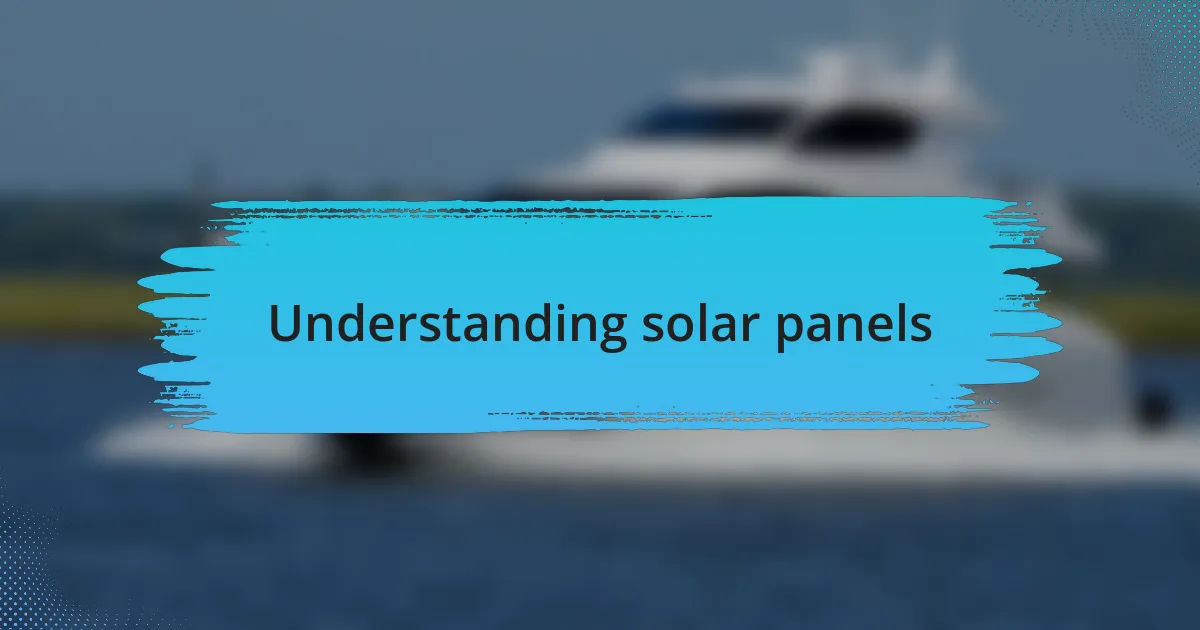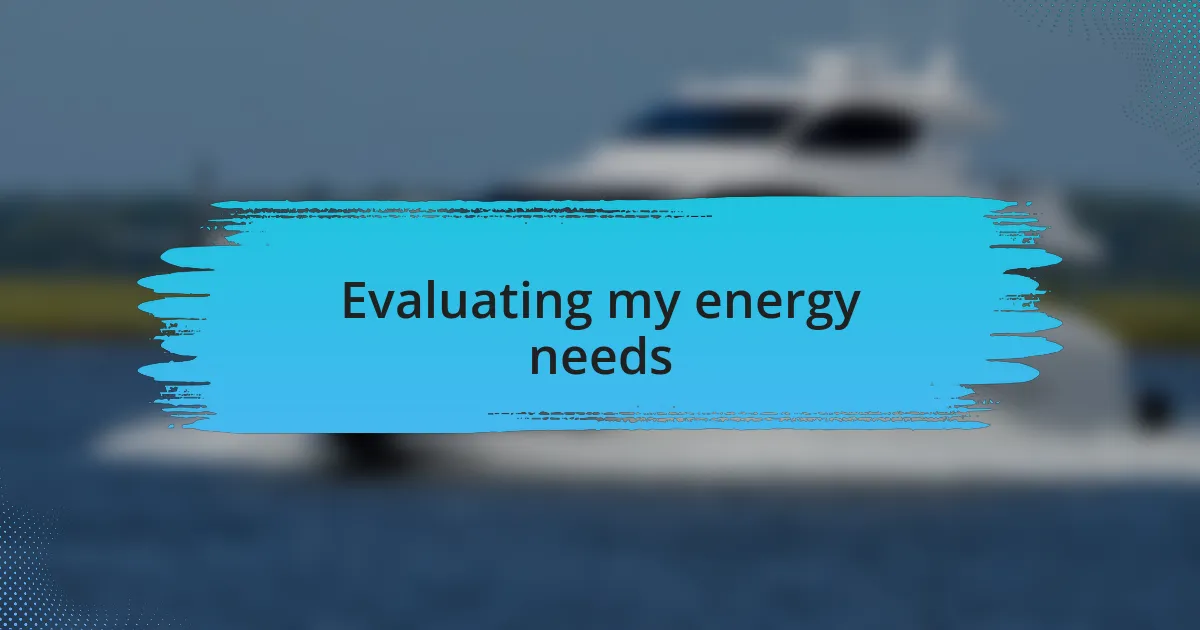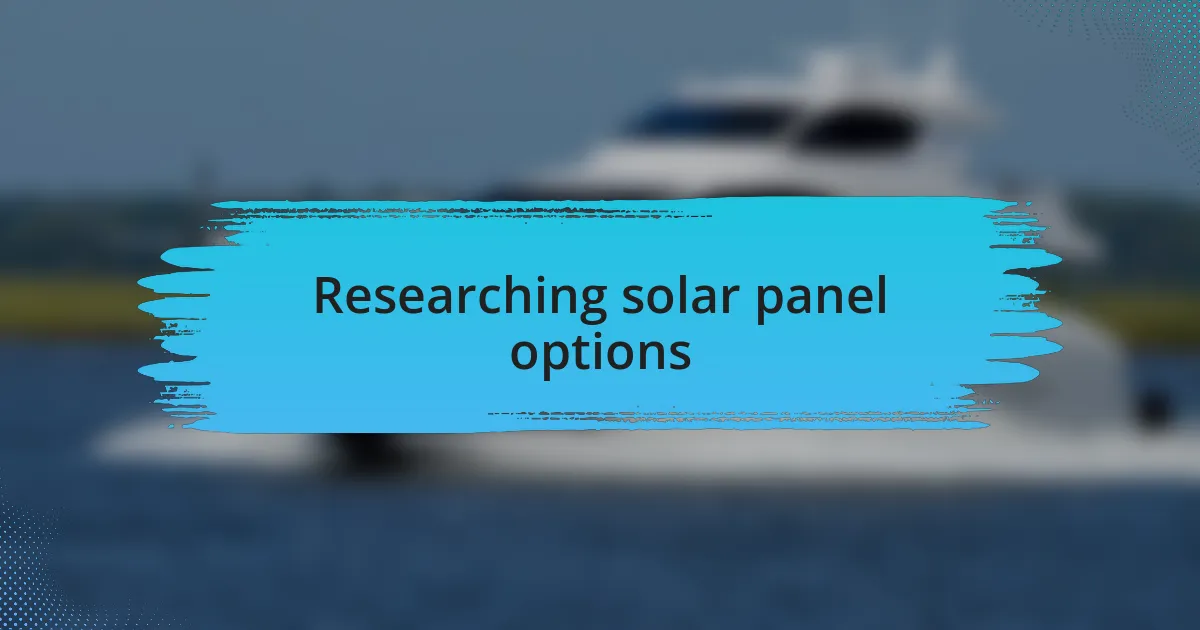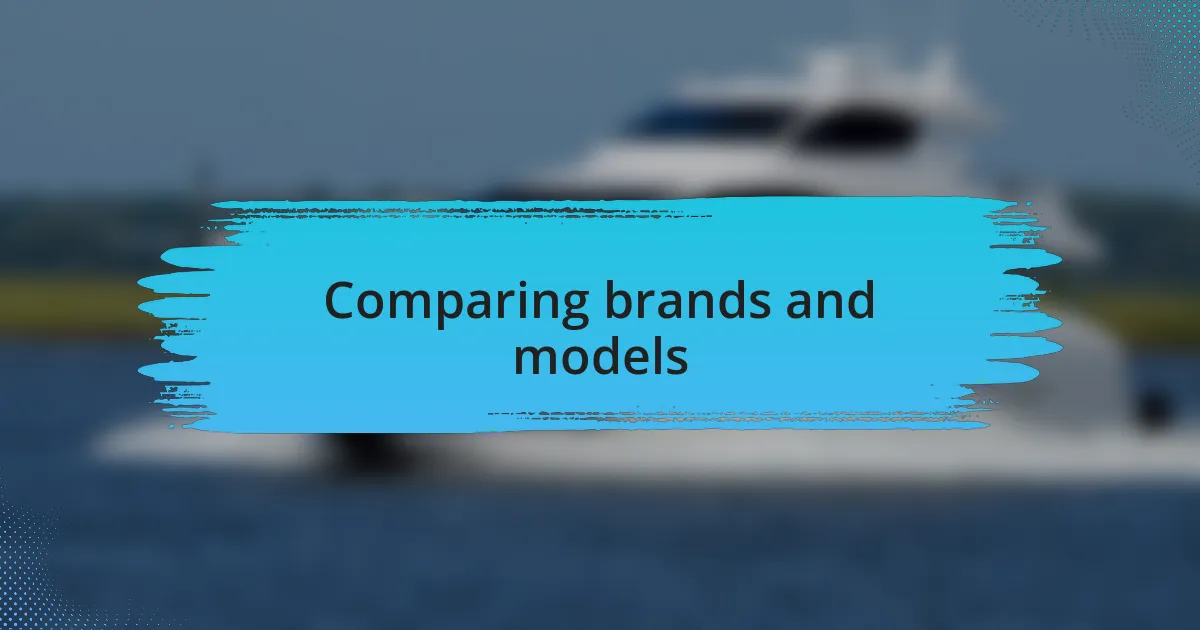Key takeaways:
- Understanding solar panel types (monocrystalline, polycrystalline, thin-film) and their efficiency is essential for luxury yacht owners seeking sustainable energy solutions.
- Accurately evaluating energy needs helps optimize solar panel usage, ensuring adequate power for daily operations and special occasions on board.
- Personal experiences and customer reviews are invaluable in researching and selecting the right solar panels, influencing choices based on real-world performance rather than just specifications.
- Brand reputation and customer service play a crucial role in decision-making, emphasizing the importance of community trust and support when selecting solar panel models.

Understanding solar panels
Understanding solar panels is crucial, especially for luxury yachts seeking sustainable energy solutions. At their core, solar panels convert sunlight into electricity using photovoltaic (PV) cells. I remember the first time I stood under the sun, watching the panels on a yacht glisten while powering everything on board—what a remarkable sight!
When I decided to invest in solar technology for my yacht, I found myself diving into the intricacies of different panel types. Monocrystalline, polycrystalline, and thin-film panels all have unique benefits and drawbacks. It’s a bit like choosing the right outfit for a special occasion; you want something that not only looks good but also performs well in various conditions.
Now, let’s talk about efficiency. I often wonder how much energy I can harness from just a few hours of sunlight. High-efficiency panels can capture more energy in less space, which is critical on a yacht where space is often at a premium. My own experience revealed that opting for panels with higher efficiency ratings made a significant difference in my energy supply, allowing me to enjoy all the luxuries that come with modern yachting without the guilt of overconsumption.

Evaluating my energy needs
Evaluating energy needs is a crucial step in optimizing solar panel use aboard my yacht. I recall my first few trips where I consistently ran out of power by midday. It hit me hard: I had underestimated my consumption of energy-hungry devices like the fridge and entertainment systems. These experiences taught me to keep a detailed log of my daily energy usage, so I could make informed decisions about how much solar capacity I truly needed.
When assessing my requirements, I considered not just the routine operations but also the additional power needed for special activities, like hosting friends for a sunset dinner. Have you ever felt the stress of a low battery while you’re soaking in the beauty of the horizon? I certainly have. This required me to factor in peak usage times and ensure my solar system could handle special occasions, which led me to explore larger panel options that could adequately supply my luxury lifestyle.
Ultimately, understanding my energy needs allowed me to create a balanced system. I learned that sizing my solar array isn’t just about making calculations. It’s about envisioning how I want to live on my yacht, embracing both comfort and sustainability. Each decision I made was a step towards ensuring that I could enjoy my adventures without constraints, something every yacht owner can appreciate.

Researching solar panel options
Researching solar panels felt like navigating unfamiliar waters at first, but I soon discovered that diving into the details was essential. I spent hours poring over specifications, comparing brands, and reading customer reviews. It struck me that experiences shared by fellow yacht owners were invaluable; they often highlighted specific qualities that made a difference in real-life scenarios, like efficiency in varying sunlight conditions.
I remember coming across a discussion forum where someone shared their struggle with a specific brand of panels during shaded mornings. Their firsthand account made me rethink how important efficiency ratings were for my own needs. How often have you experienced the frustration of watching a device drain its battery despite being connected to a power source? Such insights confirmed my decision to focus on high-performance panels that could maximize energy production during less-than-ideal conditions.
Once I had narrowed down my options, I engaged with local vendors to get a feel for the right panels for my yacht. I found that hands-on discussions revealed nuances that online research couldn’t capture. The enthusiasm of the salespeople mirrored my own excitement, as they shared tricks of installation and maintenance that I had not considered. In those conversations, I realized that personal experiences often hold a wealth of information, guiding me toward the choice that would keep my luxury sailing experience powered and worry-free.

Comparing brands and models
When it came to comparing different brands, I found that examining performance data was crucial. While browsing, I stumbled upon a particularly enticing model from a well-known manufacturer that promised high efficiency. However, when I looked deeper, I discovered mixed reviews. Some users praised its longevity, while others lamented significant performance drop-offs in dim light. It made me wonder: how could a single brand evoke such contrasting experiences?
Diving into the specifications revealed that not all solar panels are created equal. In one instance, I compared two models side by side; one boasted a higher wattage but had a steeper price tag. I chatted with another yacht owner who had experienced both and he firmly believed that paying a premium was worth it for better reliability at sea. Through these conversations, I realized that perceived value often ties deeply into personal experience—what’s a few extra dollars if it means I’ll be worry-free while anchored in a remote cove?
Ultimately, I learned that brand reputation often hinges on community trust. I spoke with a dealer who emphasized that some lesser-known brands were gaining traction due to exceptional customer service and product support. It struck me as a pivotal aspect of my decision-making process. What good is a stellar solar panel if the company behind it leaves you stranded when issues arise? The emotional investment in my choice linked not only to performance but also to the assurance of support, helping me steer towards the right models with a clear conscience.